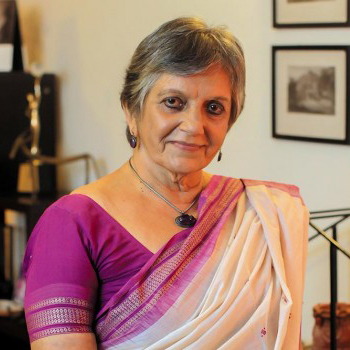The government notification that requires married women to submit a no-objection certificate from their husbands if they wish to legally change their surnames back to their maiden names reeks of patriarchy An absurd government notification, which mandates married women to obtain a no-objection certification (NOC) from their husbands if they wish to legally change their surnames back to their maiden names, has been challenged before the Delhi high
court.
This notification is unconstitutional as it is “discriminatory” and “irrational” and reflects a patriarchal bias; the underlying premise is the age-old notion that women are the chattels of their husbands and it is they who have the authority to control all their personal decisions.
The notification, published by the department of publication of the Union ministry of housing and urban affairs, prescribes that a woman seeking to legally change her name back to her maiden name — that is, her surname before marriage — must submit either a certificate from her husband stating that “he has no objection” if she uses her maiden surname or a copy of her divorce decree.
Additionally, if the matter of divorce is pending in court, the woman’s name change application would stay on hold till the divorce is concluded.
The notification is not dated and does not carry any government insignia. Also it is not clear as to why it was issued by the Union ministry of housing and urban affairs, since it falls outside the ministry’s scope.
The petition before the high court contends that the notification violates Articles 14 (equality before law), 19 (protection of certain rights regarding freedom of speech, etc) and 21 (protection of life and personal liberty) of the Constitution.
Choosing one’s name is a fundamental right and the notification creates unnecessary obstacles in the exercise of this right. By making it more challenging for women to change their names, compared to men, the notification is discriminatory on the basis of gender.
“Why must the husband’s permission be sought by a woman to change her name?” Ahuja queries. “No purpose is served by this notification and creating such hurdles for married women.”
“The notification has several levels of irrationality and arbitrariness,” points out Mihira Sood, a New Delhi-based lawyer and women’s rights scholar.
In an article published in Scroll, she comments that the notification makes irrational distinctions between not only men and women but also between women who did not change their names after marriage and those who did, but later wish to revert to their earlier names — as well as between women who wish to switch to their maiden names and all other women who might want to change their names to something else.
The notification is part of a larger Indian trend of rules and statutes that assume a woman must take on her husband’s name after marriage.
“There is enough anecdotal evidence of women facing obstacles in obtaining ordinary services, from government authorities as well as private service providers, if they don’t use their husband’s surnames,” writes Sood.
There have already been instances of travel agents asking women for NOCs from their husbands in order to travel alone. Courts have had to overrule the requirement of such NOCs from married women for travelling abroad with their children and for donating
organs, among other things.
Even when there is no legal requirement of such NOCs, authorities may not be aware and may insist on women taking on their husband’s name upon marriage and this becomes a tool to harass women who have not changed their surnames after marriage.
I have also dealt with cases on the reverse, where the husband has objected to the wife using her married surname after divorce and moved the court for a restraining order from doing so while the divorced wife argued that most of her important documents carry her married surname and not using her married surname would cause her endless problems.
Due to the widespread practice of women changing their names at marriage, they usually encounter little difficulty in doing so, as the opportunity is included in the legal process of marrying. Courts following common law officially recognise it as the right of a person (man, woman and sometimes even a child) to change their name.
This is a tradition that has come to us from the English common law. In England, under the law of coverture, after marriage, women were compelled to adopt their husbands’ surname. This remains a practice today in the UK and most Commonwealth countries that follow the norms and traditions of English common law. But there is no law compelling women to do so. It is based more on customary practices.
There are several instances of women not changing their maiden surname after marriage. This usually happens if the woman has made a name for herself and is well known by her maiden surname. In such instances, changing her surname from her maiden name to her husband’s surname may cause her loss of identity and women may be unwilling to do so.
The writer is a women’s rights lawyer.

